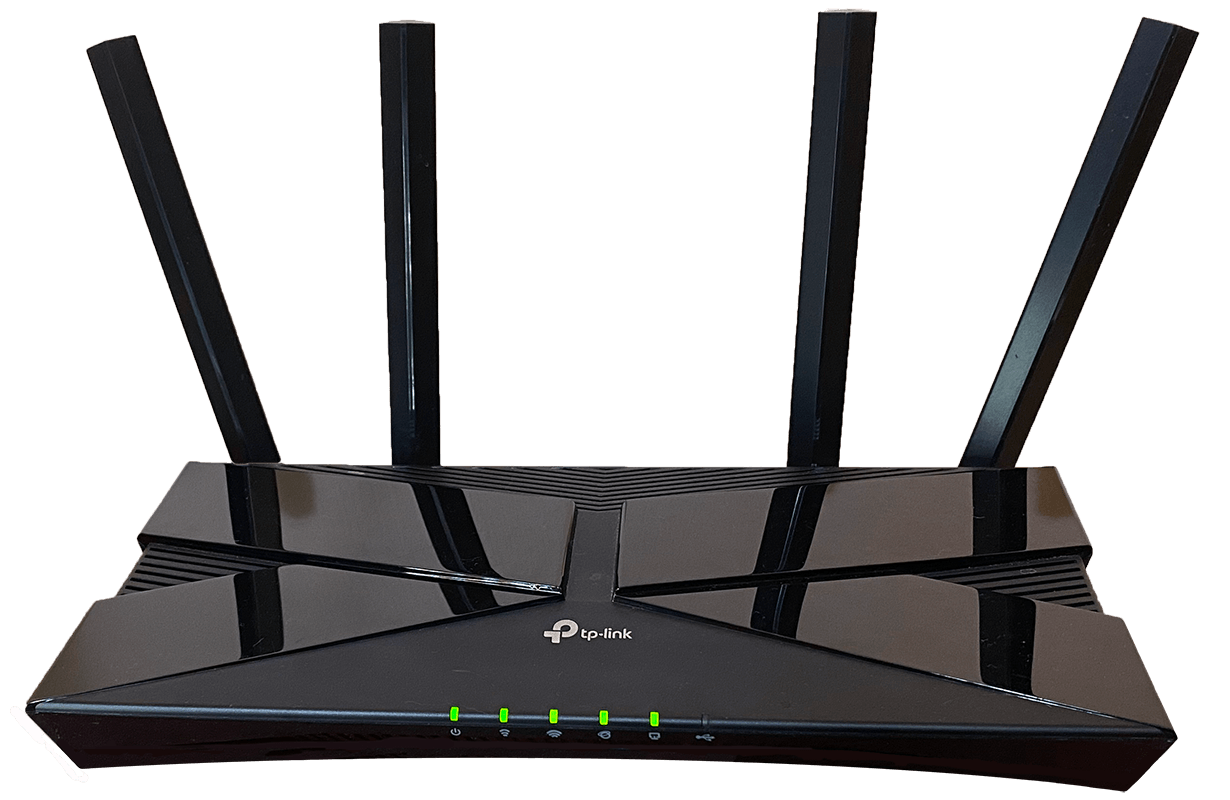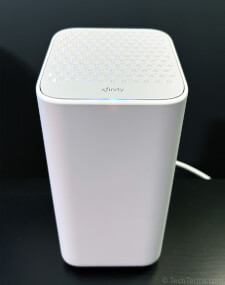Router
A router is a hardware device that directs traffic between networks and devices. It receives incoming data packets from another network and routes them either to the packet's destination computer on the local network, or to the next network along its path. A router can also keep logs of activity, run a firewall, and manage the network to prioritize certain traffic and devices.
Home routers use DHCP to assign IP addresses to every computer and device on the network. A typical home router includes a few Ethernet ports to plug computers and other devices into, but the network a router creates is not limited to the number of ports it has. Connecting a switch (or multiple switches) to a router can expand the number of devices that can be physically connected to the network, all managed by the router. Many home routers also create (Wi-Fi) networks that allow wireless access to a LAN.

Even though some home routers provided by ISPs also include a built-in modem, it is important to note that modems and routers serve two different functions.
- A modem converts the digital signal from a computer network into a format that can be transmitted over telephone or cable lines to provide a connection to the Internet. A modem is assigned an IP address by the ISP.
- A router coordinates all of the data traffic on a local area network, between individual computers and the wider Internet through a connected modem.
Core Routers
The largest, most powerful routers are called core routers, and they manage the Internet's backbone by sending data all around the world. ISPs have their own routers to direct Internet traffic between their customers and other ISPs. Small home routers coordinate traffic between computers on a local area network (LAN) and the Internet. Data sent from one computer to another over the Internet will pass through a large number of routers on its journey.
 Test Your Knowledge
Test Your Knowledge